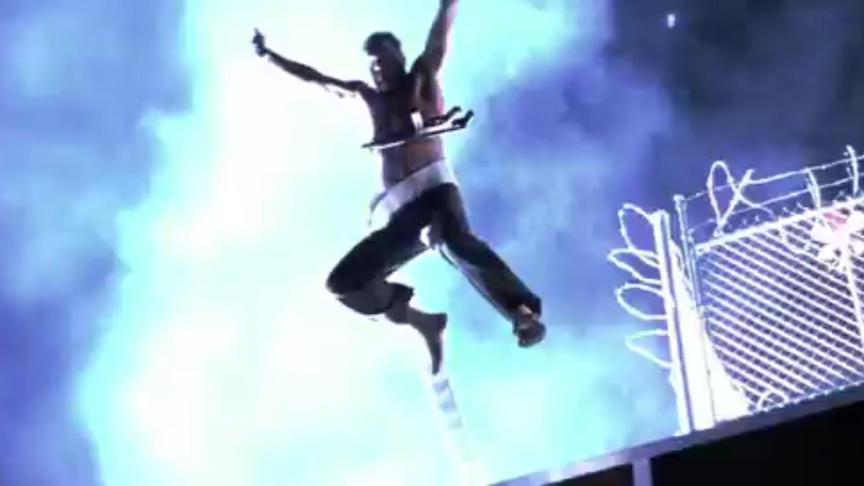“Come out to the coast, we’ll get together, have a few laughs…”
A New York City police officer comes out to L.A. to visit his estranged wife and ends up battling a group of highly-trained thieves who crash his wife’s holiday party.
Die Hard (1988)
Directed by John McTiernan
Screenplay by Jeb Stuart and Steven E. de Souza
Based on the novel by Roderick Thorp
The other day, a friend of mine asked me to sell her on DIE HARD as a movie she should watch. And I refused, because it’s DIE HARD. It’s the movie that not only fundamentally changed the way that action movies have been perceived over the last 30 years, but it also launched the careers of Alan Rickman and action star Bruce Willis.
It’s DIE HARD. Who doesn’t like DIE HARD?
Admittedly, I love every bit of this movie, but every time I watch, I am astonished at the late Alan Rickman’s portrayal of chief villain Hans Gruber. Before he was cast in Die Hard, Rickman was performing in plays and British television. This was his American theatrical debut, kicking off a pretty great career in film.
Hans Gruber isn’t a two-dimensional villain, doing evil for evil’s sake with no redeeming qualities. Rickman plays him with such nuance and gives him enough sympathetic tendencies that when he returns to his nefarious plot and murderous ways, it hurts a little bit more. His interactions with John McClane’s wife, Holly (Bonnie Bedelia), are great examples. Gruber seems to sincerely negotiate with one his hostages to offer up a little bit of relief in what is surely a trying time.
And, he shot Ellis in the head. Holly’s co-worker was so hopped up on cocaine that it probably took him a couple of minutes to realize that he was dead. I generally consider DIE HARD to be a timeless movie that plays well in any era, but Harry Ellis is just a perfect representation of the stereotyped 1980s corporate culture, a king of the Me Generation who only wants to make himself look good. Everything Ellis does in the movie is a little bit sleazy, right down to trying to negotiate with Gruber to make himself the hero. I think he probably would have survived the film if he hadn’t called Hans “bubbie” when he was trying to talk McClane down from his one-man crusade to thwart the bad guys.
(That line, by the way, was apparently ad libbed by actor Hart Bochner, and Rickman’s reaction to the line was completely genuine.)
And then you have Reginald VelJohnson, Carl Winslow himself, before he moved to Chicago and spent a decade being vexed by a high-pitched nerd in a pair of suspenders. Sgt. Al Powell is there to give John McClane an opportunity to tell the audience about himself and humanize the character a little bit more. He’s just a regular guy, after all, fighting his way through a high-rise that’s been seized by international thieves while barefoot.
This is what sets DIE HARD apart from other action films. Instead of focusing solely on what McClane is doing, and how he manages to beat the bad guys, the film takes some time to build a world around Nakatomi Plaza. So many minor players get a good amount of screen time and almost all of them add something to the overall beauty of the film. The only characters that strike me as completely useless are the FBI agents, Big and Little Johnson, who are really only there to create more of a mess and then go boom in a helicopter. Although, it does provide an opportunity for Patrick Gleason, as Deputy Police Chief Dwayne R. Robinson, to spit out one of the best lines in the movie when their helicopter mission goes tits up. “We’re gonna need some more FBI guys, I guess.” Given how much of a dick Robinson had been up until that point in the movie, that deadpan line just comes out of nowhere and makes me laugh every damned time.
Of course, McClane manages to kill all the bad guys, finally tossing Gruber off the roof of Nakatomi Plaza (Robinson: “I hope that’s not a hostage…) and reconnecting with his estranged wife, who uses her pent-up frustration from the hostage situation to knock out a TV news reporter who gets in her face, the same piece of crap who went to Holly’s home, threatened her housekeeper and basically told Holly and John’s kids that their parents are dead for some ratings. It’s all perfectly 1980s and startlingly prescient to the way cable news operates today.
There’s so much going on in this movie, and it all ties together so well under the direction of John McTiernan and a ridiculously talented staff. Seriously, who doesn’t like DIE HARD?
